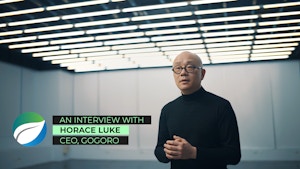Asia Pacific‘s leading platform for sustainable development
#electric vehicles News

Policy & Finance
Japan to scrap environmental levy on car purchases in tax overhaul
Tokyo approved the outline of tax reforms for fiscal 2026 to scrap purchase-stage green levy as environmental groups warn of weaker incentives.

Singapore, Vietnam, Thailand and Indonesia are now among the world’s fastest-growing electric vehicle markets, surpassing major economies in EV share of new car sales, a report from Ember finds.

Policy & Finance
China’s $180bn cleantech push shifts global alliances as nations hedge against US uncertainty: report
Beijing’s overseas clean energy investments have surged 80 per cent in a year, according to a recent report, drawing emerging economies into deeper industrial and diplomatic ties and accelerating a broader reordering of global supply chains.

Corporate Responsibility
Philippines under pressure to improve the rights of nickel miners amid global talks on critical minerals
Opaque labour practices are blamed for alleged abuses of nickel mining workers’ rights, according to a recent study, but will the inclusion of language on labour rights at the world’s biggest climate talks be the fundamental step to ease their plight?
#electric vehicles Opinion

Carbon & Climate
Three reasons why China wants global green leadership after COP30
China wants to lead the climate agenda on its own terms – exporting clean tech and influence, while sidestepping tougher cuts and accountability.

Policy & Finance
Trade wars destroy the planet
Given that China is the world’s largest emitter and has a high carbon intensity, some assume that its trade war with the United States, which has shifted production to third countries, would have environmental benefits. In fact, the conflict has increased carbon dioxide emissions in developing and advanced economies alike.

Carbon & Climate
How climate became China’s strategy for survival and security
China’s climate pivot has been shaped by its survival strategy, and this is now quickly redefining its resilience in the 21st century. Whether that power endures will depend on Asean – arguably China’s closest testbed for clean energy development. The recent Asean Summit and Apec meetings suggest China’s successes in climate and development will see a far larger reach beyond its shores.

Carbon & Climate
What a China-EU climate deal could do for the world
With America having abandoned global leadership – especially on climate change – cooperation between China and Europe has become even more important. To reduce tensions and deepen ties, policymakers in two of the world's three largest economies should address four priorities.
Policy & Finance
Can Europe and China forge a climate connection?
Policy & Finance
How green industrial policies are advancing in the Asia-Pacific
Policy & Finance
Political changes don’t weaken the case for green business
#electric vehicles Videos

Transport
What makes an electric car clean?
EB Studio
Polestar, a new entrant to Singapore’s electric car market, hopes to woo consumers by going the extra mile in sustainable design.

In gridlocked, smoggy Southeast Asian cities, change is afoot to electrify transport and clear some of the world's most polluted skies. This video documents the pockets of hope for e-mobility around the most climate-vulnerable region.

Battery-powered air taxis could be a common sight on the city-state's skyline by 2021.

EB Studio
Battery technology could reshape the global energy sector, and this year's #Innovate4Climate summit in Singapore will focus on the cutting-edge innovation that could change the energy landscape.
#electric vehicles Podcasts

Trump 2.0 may prove to be a "bump in the road" for climate action, but banks and investors in Asia see growth and opportunity in the region for decarbonisation as climate risks grow.

Formula 1 emits the carbon equivalent of 30,000 homes as it roars through 21 countries in a season. Mercedes-AMG Petronas F1 head of sustainability Alice Ashpitel says the sport's ambition to decarbonise by 2030 is not unrealistic.

GoTo sustainability head Tanah Sullivan tells the Eco-Business Podcast that regulating net-zero claims would decarbonise Southeast Asia faster. Indonesia's biggest internet firm aims to cut emissions to zero by 2030 — a target critics say is unrealistic.

Exclusive
In this new podcast series 'Climate Tech in Asia', Eco-Business speaks to Gogoro chairman and CEO Horace Luke about the company's recent listing on the Nasdaq and its quest to electrify Asia's ubiquitous two-wheelers and make battery swapping mainstream.
#electric vehicles Press Releases

United Nations Economic and Social Commission for Asia and the Pacific (ESCAP)
Students invited to shape Bangkok’s transport future

United Nations Environment Programme (UNEP)
Why 2025 could be the year of the electric vehicle in developing countries

United Nations Economic and Social Commission for Asia and the Pacific (ESCAP)
New United Nations, UK project to support shift to electric mobility in Thailand
#electric vehicles Research

MioTech
Are EVs meeting ESG standards?

British Embassy Manila and Eco-Business
Electric vehicles in the Philippines: Business opportunities, market barriers, and policy signals

Eden Strategy Institute, LLP
Mitigating social impact in a low-carbon Singapore







